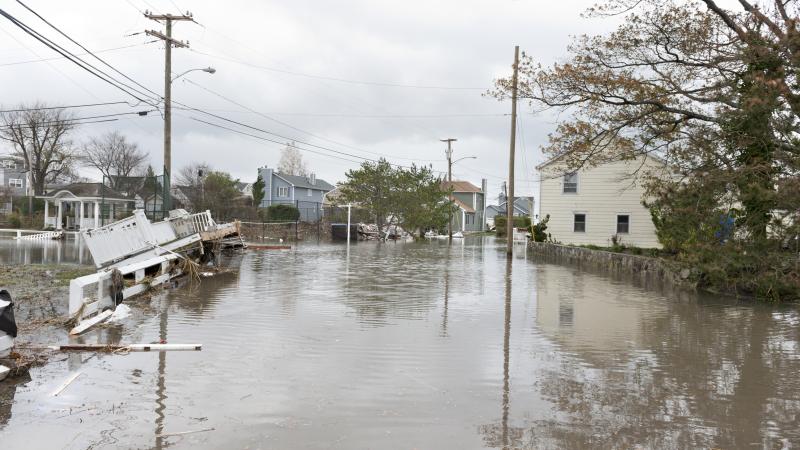National effort led by Rensselaer will drive pathbreaking research on hazards and disasters
September 24, 2019

TROY, N.Y. — Communities throughout the world are being exposed to an ever-changing variety of natural and technological hazards. In 2012, for example, Superstorm Sandy produced unusually severe flash flooding in rural Vermont, exposed the vulnerabilities of barrier islands in New York to high-wind events, and led to renewed questions of society’s ability to prepare for and respond to emerging natural hazards.
A new grant from the National Science Foundation will support the creation of a national network of researchers in systems engineering seeking to develop innovative methods for mitigating, responding to, and learning from hazards and disasters.
David Mendonca, an associate professor of industrial and systems engineering at Rensselaer Polytechnic Institute, is the lead investigator on the grant. He has spent his entire career researching how a systems perspective can contribute to societal resilience to disaster.
“Disasters push societal systems — whether in health, infrastructure, education, or other domains — to their limits, and sometimes beyond,” Mendonca said. “Over time, as disasters become more complex, we need to develop new methods for understanding their origins and consequences, as well as for lessening their adverse effects. Too often, our methods evolve more slowly than disasters themselves. This grant is expected to accelerate the process of methodological innovation through the development of a network of top-flight researchers nationwide.”
The Operations and Systems Engineering Extreme Event Research (OSEEER) network will advance basic science and engineering while also improving societal well-being.
OSEEER will collaborate with similar networks in the areas of geotechnical and structural engineering, social science, and interdisciplinary science and engineering. The University of Colorado’s CONVERGE research center will provide a platform for researchers in these networks to share methods, data, and equipment to support disaster-related research.
“OSEEER is a vector for introducing methodological innovations from industrial and systems engineering into the field of hazards and disaster mitigation and response,” Mendonca said. “As an integrative field, industrial and systems engineering is well positioned to drive innovation within and across diverse disciplinary areas.”
Rensselaer is leading this effort, with participation from researchers at Georgia Institute of Technology, Rutgers University, The Ohio State University, University of Wisconsin, Northeastern University, and University of Michigan.